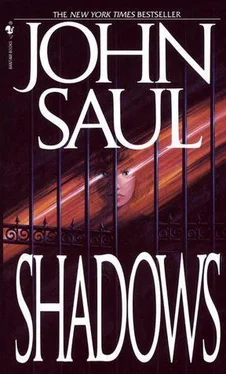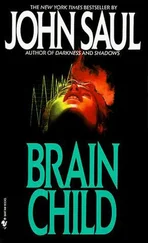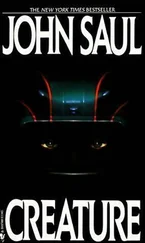In a way, it was as if he was wiping his life out, obliterating it, so that no one would be able to search for clues as to why he’d done what he’d decided to do.
After all, it wasn’t anybody else’s business — it was his life, and he could do anything he wanted to with it.
The computer beeped softly, indicating that its task was completed.
Adam dropped the utility program out of memory, and when the “C:” prompt appeared, typed a single line:
C ERASE* *
He pressed the enter button, and a question appeared:
ARE YOU SURE? ALL FILES WILL BE ERASED. N (Y)
For a fleeting moment he was once again tempted to change his mind. Then, taking a deep breath, he hit the Y key. When the final question reappeared, giving him one last chance to reverse his course, he pressed it again.
A second flicked by, and then the “C:” prompt reappeared. Though the computer was still functioning, there was nothing it could do, for Adam had stripped away everything that made it useful. Now it was nothing more than a blank memory, waiting for data to fill it up.
Adam typed for a few seconds, then turned off the monitor, plunging the room again into total darkness. Moving silently to the door, he opened it a crack and peered out into the dimly lit hallway that ran the length of the second floor.
The hall was empty, and he could hear nothing.
He stepped into the corridor, pulling the door closed behind him, its soft click resounding in his ears with an unnatural loudness. He froze, half expecting the doors along the hall to open as the other kids peered accusingly out at him.
Nothing happened.
The silence of the building closed around him like a shroud.
He crept to Jeff’s door, pausing for a moment. Should he go in and say good-bye to his brother?
No.
Better just to disappear into the darkness of the night.
Moving silently down the hall, he came to the top of the broad staircase that curved down to the floor below and listened once more.
Silence.
The chandelier hanging in the entry hall had been dimmed for the night, casting only a soft glow through the spacious room. For a moment Adam gazed at the crack under Hildie Kramer’s office door.
Was there a light on inside?
He wasn’t sure.
He crept down the stairs, clinging to the wall as if its mass could somehow shelter him from any eyes that might be watching, waiting for him.
At last he came to the front door. He twisted the knob slowly, as if even the faint sound of its sliding bolt might betray him. Pulling the door only wide enough to slip through the narrow opening, he moved out onto the porch, waiting in the deep shadows of the loggia until he was certain no one was on the grounds in front of the house. Then, at last, he made his move, darting across the lawn, scuttling from tree to tree like a small animal exposed to predators. Only when he was through the gate did he allow himself to breathe easily.
When his pulse, racing from the tension of his clandestine departure from the Academy, finally settled into a normal rhythm, he moved off into the night. Though the air was unseasonably warm, even for mid-September, he felt a chill run through him.
But his mind was made up.
Twenty minutes later he stood in front of the house he’d grown up in, the old shingled two-story house his parents had bought when he was only two years old. Three blocks from the beach, it was surrounded by a neat lawn that was his father’s pride, with enormous camellia bushes growing on either side of the front porch. Adam’s eyes drifted over the house, pausing briefly at the second floor, on the room that had once been his. A lot of his stuff, he knew, was still in that room, waiting for him when he came home.
Now it would wait forever. He would never come back to this house again.
Another tiny doubt assailed his mind. For just a second he had an urge to go into the house and wake up his mother. Maybe he should talk to her about what he was going to do
No!
Jeff’s threats rang in his mind, and Adam knew what she’d do.
Call the doctor and have him taken away.
Away, where he’d never be able to do what he wanted again.
He turned away from the house and moved on to the town’s small business area, pausing in front of the stores to look at the displays in their windows. There was nothing in any of them he wanted, nothing he would miss.
He walked on, glancing warily around every few seconds, ducking into deep shadows whenever a car approached. He couldn’t get caught now, not when he was so close.
He started back toward the Academy, moving quickly now, feeling every minute passing. He came to the gate, edging through it, then skirting around the lawn, staying near the fence. Finally he moved toward the mansion itself.
He gazed at the darkened windows of the enormous house, and then his eyes moved up to the fourth floor, to the odd cupola perched atop the structure almost like a bird hunching above its prey.
He could see lights glowing in Dr. Engersol’s windows.
He stared at those lights, shining brilliantly while the rest of the Academy slept.
The rest of it, except for him.
Ducking his head and hunching his shoulders, he shoved his hands into his pockets.
It was time to get on with it.
The train moved fast down the track, for it was barely a train at all. Nothing more than an engine, a couple of empty cars, and a caboose. There would be no stops on the trip — there never were — for this was no more than one of the weekly runs the train made up the spur from Salinas, moving through Santa Cruz, then running up to the end of the track. It was a pointless run, except for one thing.
It kept the right of way open, protected the Barrington Western Railroad’s right to use it.
It was a boring run, the only interesting part of it being the northern leg, when the train ran steadily backward, creeping slowly along while a member of the crew stood in the caboose, watching the track and giving an unbroken stream of all-clear signals to the engineer. But once it reached the dead end forty miles north of Barrington and started back, the crew was tired, more inclined to watch the moonlight playing on the sea than the track ahead.
After all, in the twenty-five years the engineer had been making the run, there had never been an event worth reporting to his supervisor. So tonight, as the train hit sixty along the straightaway north of Barrington, and the engineer prepared to begin his slow deceleration to the fifteen mile speed limit through the town itself, he wasn’t really pitying too much attention to the track ahead.
Not that it would have made any difference, for by the time he saw the object on the track as he came around a curve, it was far too late to stop the train anyway.
Still, he slammed on the brakes and shouted to the fireman. “Jesus Christ! Looks like some idiot dumped a bag of garbage on the track!”
The train began to slow, the brakes screaming as the engineer pulled hard on the lever.
Then, as the brilliance of the headlight caught the object in the full glare of its beam, he realized that the object wasn’t a bag of garbage at all.
It was a person, crouched down between the tracks, hunched over, his back to the train.
The engineer hit the horn, and a blast of noise tore the night, rousing a flock of sparrows from their roosts in the trees along the track. They burst into flight, disappearing instantly into the night.
The person on the railroad tracks didn’t move.
The engineer felt a sheen of sweat break out over his whole body as he realized what was about to happen, and that there was no way on earth he could avoid it. The inertia of the big diesel engine was enough that even if he managed to lock the brakes completely, the machine would lunge on, steel skidding against steel, sparks flying.
Читать дальше












